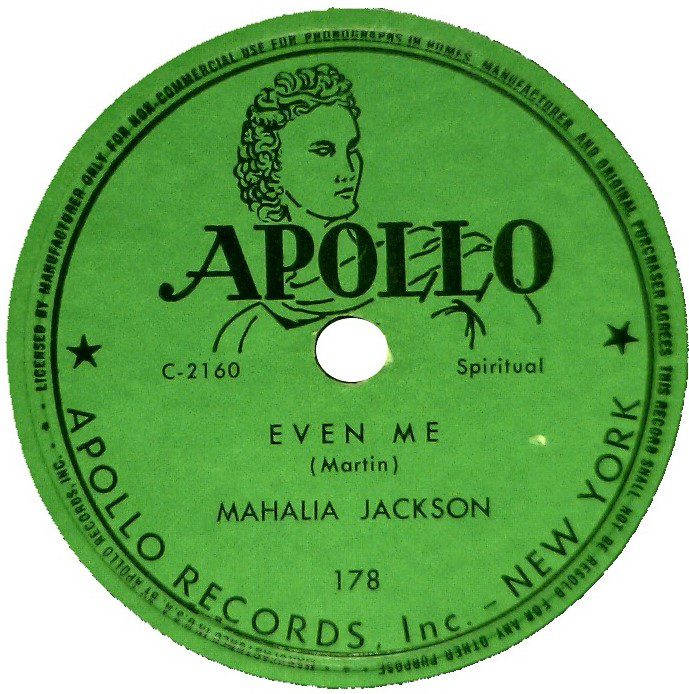
Gospel music has always served as encouragement for the Black community as they navigate the difficulties of oppression in America. Gospel music gave Black America hope during times of transformation including the Great Migration and the Civil Rights Movement. As early black artists signed to record labels their messages of spiritual salvation were heard globally, therefore, uplifting a global community.
Gospel music incorporates shouting, clapping, call-and-response which have carried over from folk spirituals. Early in the gospel genre the Holiness-Pentecostal Style was popular in the 1920s which had a heavy ragtime influence as seen in popular secular music of the time. During this time the Great Migration was in full effect and as Black Americans attended churches in the North, they wanted in hearing music that resonated with them that reflected their past in the south.
Apollo Records was founded in the early 1940s in Harlem and named after the famous Apollo Theater. During Apollo Records peak from 1948- 1952, the company primarily worked with gospel artists. Mahalia Jackson was their biggest star and was recorded most often. Apollo also recorded The Dixie Hummingbirds, The Robert Anderson singers, and Harold Ivory Williams and the Ivory Gospel Singers, to name a few. As well as gospel artists, Apollo worked with jazz, and blues artists.
Mahalia Jackson signed to Apollo Records in 1947 and recorded “Move on Up A Little Higher” which was a huge hit and sold eight million copies.
In 1953, one of the company’s founders, Hy Siegel formed his own record label and in the next year Mahalia Jackson left to Colombia Records. In addition Apollo Records was later sued by former artists for copyright infringement. They claimed that Apollo used 20 songs from Thomas Dorsey and other artists. In 1956, Apollo ceased the production of its gospel recording program.
It can be assumed that Apollo copied Dorsey’s works because of his integration of jazz influence into gospel music to make worship lively which assisted in keeping black America’s hopes up. This music thrived during the Great Depression where many people were struggled to survive and relied on gospel music to get them through challenging circumstances. It is evident that the Black community uses music to cope and express themselves through music, which is why gospel is valued by the black community today. His works include “Take My Hand Precious Lord,” and “The Lord Will Make A Way.”
Apollo Records needed more content to keep them making money and through influential black artists like Mahalia Jackson and Thomas Dorsey, the company was able to appeal the black audience. This style and sound of music is a staple in the Black Church as it is lively, uplifting, and exactly what people needed to persevere through their struggles and still use for encouragement today.
Gospel music got Black Americans through trying times including the Great Depression, the Great Migration, and the Civil Rights Act. Record companies such as Apollo Records used this time of influence from gospel artists to make money from the salvation and hope many black Americans were searching for. Apollo Records and other record labels like it, knew that gospel music was an essential part of the black community as the songs of praise and worship reassured everyone that things would be alright, and they wanted to capitalize from it.
Broven, John. Record Makers and Breakers: Voices of the Independent Rock n’ Roll Pioneers, University of Illinois Press, 2009
Komara, Edward, ed. Encyclopedia of the Blues, Routledge, 2006
Zolten, J. Jerome. Great God A’Mighty! The Dixie Hummingbirds: Celebrating the Rise of Soul Gospel Music, Oxford University Press, US 2003

Login to your account